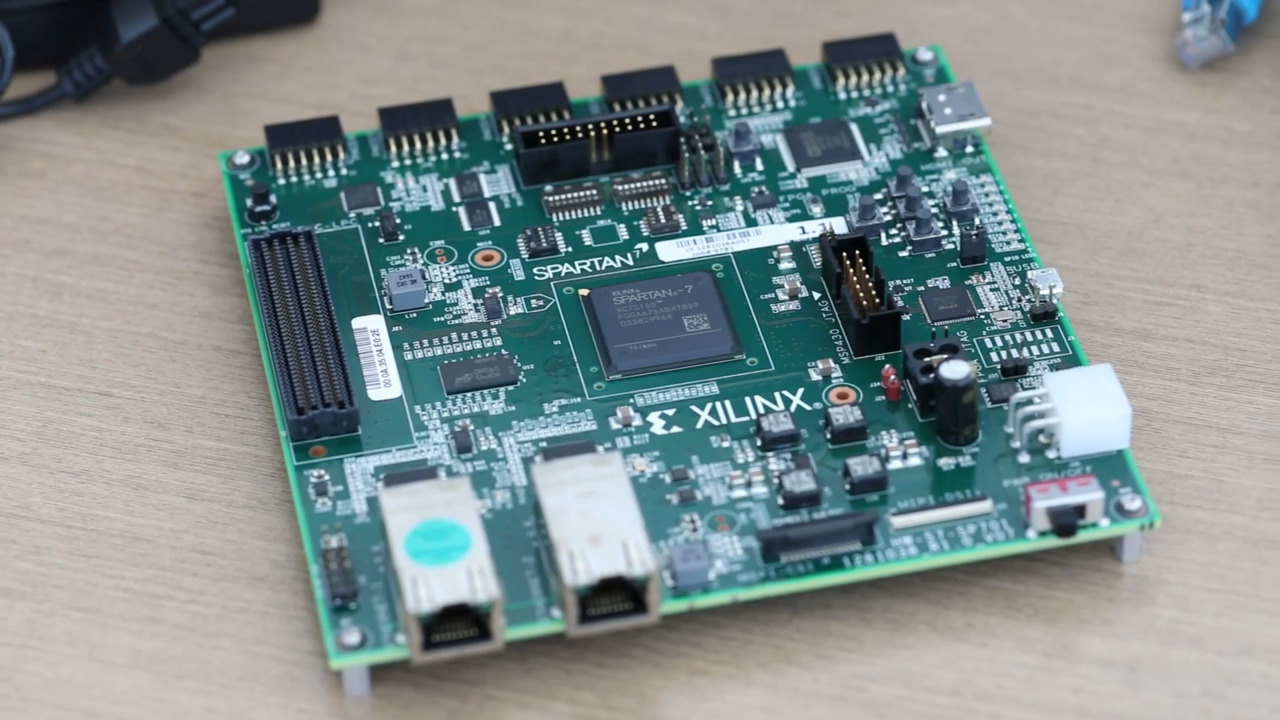Time: 2025-03-17 11:17:34View:
The Xilinx 7 Series FPGAs are known for their advanced architecture and efficient use of resources, including storage. These FPGAs provide several storage resource advantages that make them highly suitable for a wide range of applications, from high-performance computing to embedded systems. Below are the key storage resource advantages of Xilinx 7 Series FPGAs:

High-Capacity On-Chip Memory:
The 7 Series FPGAs feature up to 68 Mb of Block RAM (depending on the device), organized into 36 Kb blocks. Each block can be configured as two independent 18 Kb RAMs or as a single 36 Kb RAM.
Flexible Configuration:
BRAM can be configured as single-port or dual-port RAM, FIFOs, or ROM, providing flexibility for various memory requirements.
Wide Data Widths:
Supports data widths up to 72 bits (including parity), making it suitable for high-bandwidth applications.
Low Latency:
On-chip BRAM provides fast access times, reducing latency compared to external memory.
High-Density Memory:
Available in select 7 Series devices (e.g., UltraScale), UltraRAM provides 288 Kb of memory per block, significantly larger than BRAM.
Efficient for Large Data Sets:
Ideal for applications requiring large, contiguous memory blocks, such as video buffering, packet buffering, or data caching.
Power Efficiency:
UltraRAM is optimized for power efficiency, making it suitable for power-sensitive applications.
Resource-Efficient Small Memory:
Distributed RAM utilizes the FPGA's LUTs (Look-Up Tables) to create small, flexible memory blocks (up to 64 bits per LUT).
Low-Latency Access:
Provides extremely fast access times, ideal for small, high-speed memory requirements.
Flexibility:
Can be used for small FIFOs, shift registers, or scratchpad memory.
Efficient Use of LUTs:
LUTs can be configured as shift registers, enabling efficient implementation of delay lines, small FIFOs, or serial-to-parallel converters.
Resource Savings:
Reduces the need for additional logic or BRAM, saving resources for other tasks.
Reliability:
BRAM and UltraRAM support ECC, which detects and corrects single-bit errors and detects double-bit errors. This is critical for applications requiring high reliability, such as aerospace, automotive, or data centers.
Data Integrity:
Ensures data integrity in memory-intensive applications.
External Memory Integration:
The 7 Series FPGAs support high-speed external memory interfaces, such as DDR3, DDR4, LPDDR2, and QDR II+, enabling seamless integration with large external memory systems.
Memory Controllers:
Built-in memory controllers simplify the design process and improve performance for external memory access.
Low-Power Memory Options:
The 7 Series FPGAs are designed with power efficiency in mind. BRAM and UltraRAM are optimized for low power consumption, making them suitable for power-sensitive applications.
Clock Gating:
Supports clock gating to reduce dynamic power consumption in unused memory blocks.
Wide Range of Devices:
The 7 Series family includes devices with varying amounts of BRAM and UltraRAM, allowing designers to choose the right balance of resources for their application.
Modular Design:
The modular architecture ensures that memory resources scale efficiently with the size of the FPGA.
Signal Processing:
The combination of BRAM, UltraRAM, and DSP slices makes the 7 Series FPGAs ideal for signal processing applications, such as FFTs, filters, and video processing.
Data Buffering:
Large memory blocks are well-suited for buffering high-speed data streams in networking, telecommunications, and video applications.
Embedded Systems:
On-chip memory reduces the need for external components, simplifying embedded system designs.
High-capacity on-chip memory (BRAM and UltraRAM) for large data sets.
Flexible memory configurations (single-port, dual-port, FIFO, ROM).
Low-latency access for high-speed applications.
ECC support for improved reliability.
Power efficiency for energy-sensitive designs.
Scalability across a wide range of devices.
Seamless integration with external memory interfaces.
These advantages make the Xilinx 7 Series FPGAs a powerful choice for applications requiring efficient and high-performance storage solutions.